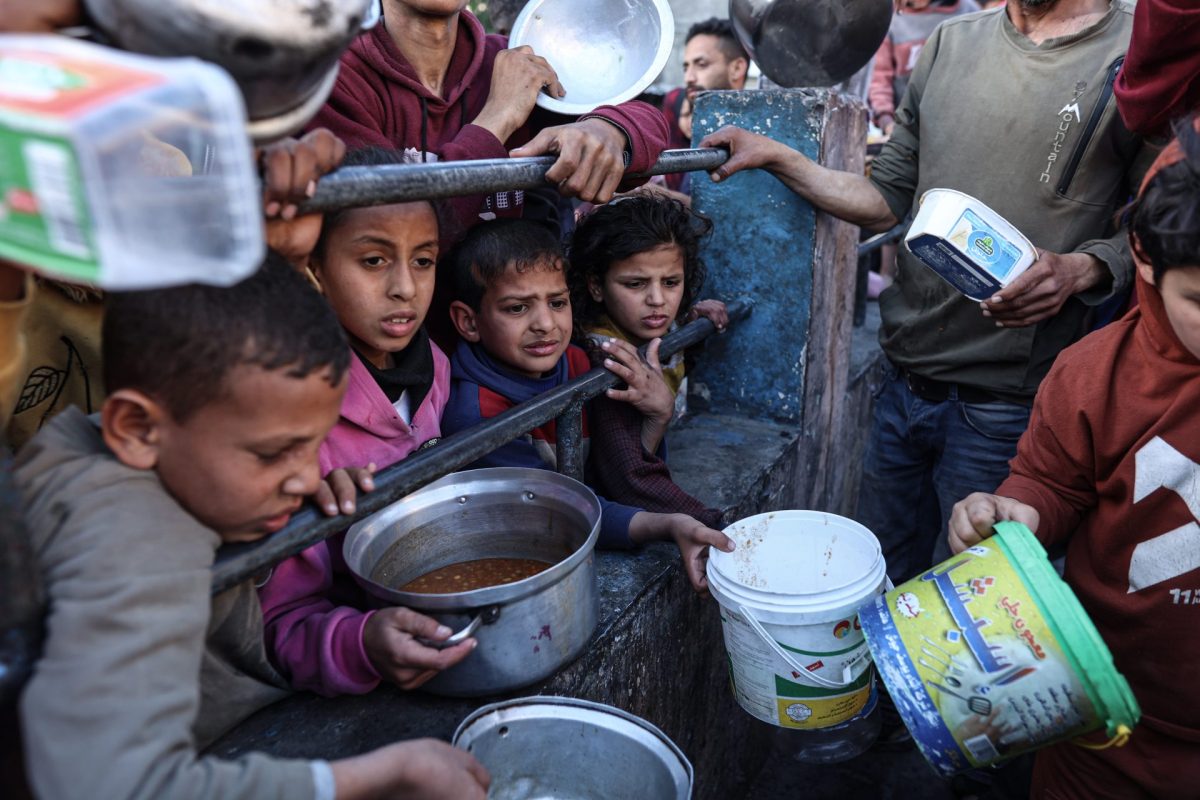Speaking in a virtual news conference, Hollingworth said: “Calls to action (for Gaza) have predominantly been going to deaf ears. But fundamentally what we need of course, is an immediate ceasefire.”
Saying that the “exodus we have seen in past 20 days or so out of Rafah has been a horrific experience for many people,” Hollingworth noted that there is a severe shortage of water, medical supplies, fuel, and food in places people have fled to.
Hollingworth said that the public health situation in these areas are “beyond crisis level,” adding: “The everyday life is terrific and apocalyptic. People sleep to the sounds of bombing, they sleep to the sounds of drones, they sleep to the sounds of war.”
The UN agency for Palestinian refugees (UNRWA) has also warned that the overcrowding and poor sanitation in Gaza’s refugee camps are advancing the spread of infectious diseases.
In a statement released on X, the UNRWA emphasized the urgent need for improved healthcare services. “Our teams continue to provide essential medical care to vulnerable individuals, including children and the elderly,” the agency said.
However, the situation remains critical due to the scarcity of vaccines and medicines, it said, adding the overcrowding and lack of proper sanitation in Gaza’s shelters have contributed significantly to the health crisis.
“Overcrowded shelters and inadequate hygiene practices are fueling the transmission of infectious diseases,” the UNRWA warned.
It called for “safe and unrestricted access” to address the pressing health needs of the refugee population.
Israel has continued its brutal offensive on Gaza following the Oct. 7 Hamas incursion, despite a UN Security Council resolution demanding an immediate cease-fire.
More than 36,000 Palestinians have since been killed in Gaza, the vast majority being women and children, and over 82,000 others injured, according to local health authorities.
Nearly eight months into the Israeli war, vast swathes of Gaza lay in ruins amid a crippling blockade of food, clean water, and medicine.
Israel stands accused of genocide at the International Court of Justice, which in its latest ruling has ordered Tel Aviv to immediately halt its operation in Rafah, where over a million Palestinians had sought refuge from the war before it was invaded on May 6.
The UN humanitarian office and World Health Organization (WHO) has also warned aid is “not getting to people” in Gaza, and as a result “children are starving.”
“They are certainly not getting the amount that they desperately need to prevent a famine,” Jens Laerke, the spokesperson for the UN humanitarian office, stated at a UN briefing in Geneva.
Laerke said: “More military action is not normally helpful for humanitarian action.”
He added that it is “difficult to predict” how it would affect the humanitarian operations as a whole, considering the “very dynamic” situation on the ground with armed forces moving around to different areas.
“We want military action to cease altogether. We want to have a humanitarian pause,” he urged.
“That is the only way we can actually do our jobs properly.”
The UN has recently reported that aid deliveries to Gaza have decreased by 67% since the closure of the Rafah crossing on May 7.
“Our colleagues in the Office for the Coordination of Humanitarian Affairs (OCHA) tell us that widespread Israeli bombardments continue to be reported. Ground incursions and heavy fighting are also affecting northern, central and southern Gaza,” UN spokesperson Stephane Dujarric told reporters at a news conference.
Saying that the “the flow of humanitarian aid into Gaza has dropped by 67% since the seventh of May”, Dujarric attributed this primarily to the closure of the Rafah border crossing.
Dujarric also stated that health and service facilities are shutting down one by one and that displacement due to the attacks is also affecting the distribution of resources.
Noting that only one hospital in Rafah is partially operational, Dujarric added the UN and its partners are trying to do their best under all conditions.
The OCHA has also announced only 14 out of 36 hospitals in the war-torn Gaza Strip are still partially functional, warning about growing environmental risks in the besieged Palestinian territory.
